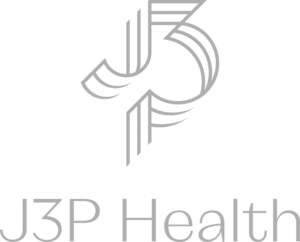Hospitals and health systems are recovering from one of the worst financial years in recent history and focusing energy on achieving growth and sustainability. Although hospital margins did improve in 2023 with the median operating margin increasing to 2% according to Becker’s Hospital Review, executives are continuing to look for ways to cut costs and improve margins while continuing to provide top-notch patient care in the face of more complex patient acuity. Now, a few years post-pandemic, our country’s hospitals are still vulnerable to potential shifts in the market or disruptions and continue to face financial challenges. And volume growth alone does not equal margin recovery, particularly with the growing shifts in site of care, and the continued outpatient migration that is eroding profitable inpatient volumes.
Corazon believes by focusing attention on core operations — margins, quality, and workforce — the basics of system success can be met, and the quicker a return to operational normalcy. In addition, organizations need to prioritize clinical operational efficiency and quality. Strategic initiatives should focus on opportunities to make improvements in clinical operational efficiency including care variation reduction, operating room efficiency and scheduling, inpatient management for complex patients, and reducing delays in patient discharge.
Specific key recommendations from Corazon include:
1. Revenue optimization:
Hospitals rely on various revenue streams, including insurance reimbursements, government funding, and private payers. Identifying ways to maximize revenue can be a daunting task, but assessing a hospital’s revenue cycle management processes, identifying areas for improvement, and devising strategies to optimize reimbursement, reduce claim denials, and streamline billing and coding practices can lead to a more financially sustainable future.
2. Cost containment:
Operational costs, such as staffing, medical supplies, and equipment maintenance, can significantly impact a hospital’s financial stability. Corazon has much experience in ways to manage costs effectively by conducting comprehensive program analyses, identifying inefficiencies, and recommending strategies without compromising patient care. From program optimization to scheduling improvements, these are just a few ways in which Corazon can help hospitals find ways to trim expenses.
3. Strategic planning and forecasting:
A key aspect of financial success for hospitals is strategic planning. Corazon is skilled in analyzing market trends, forecasting future demand, and identifying growth opportunities. By leveraging this expertise, hospitals can develop effective long-term strategies that align with their financial goals. Corazon can also provide insights on diversifying services, expanding into new markets, or forming strategic partnerships, all of which can improve financial stability.
4. Improved operational efficiency:
Streamlining operational processes is paramount to cost reduction and revenue optimization. By conducting a thorough operational assessment, identifying bottlenecks, proposing efficient workflows, implementing best practices, and reengineering processes, hospitals can minimize waste, increase efficiency, and enhance the overall patient experience.
Conclusion:
As hospitals face an increasingly challenging financial landscape, seeking assistance can be a proactive step toward ensuring the financial strength and continued success of hospitals in the future. Corazon consultants can play a crucial role for an organization needing to optimize operations, develop new clinical programs, or assist with strategic planning and can offer invaluable expertise and guidance to help navigate obstacles. By addressing revenue optimization, cost containment, strategic planning, and operational efficiency, hospitals can overcome financial challenges and pave the way for long-term financial sustainability.

 company
company 
 (412) 364-8200
(412) 364-8200


























